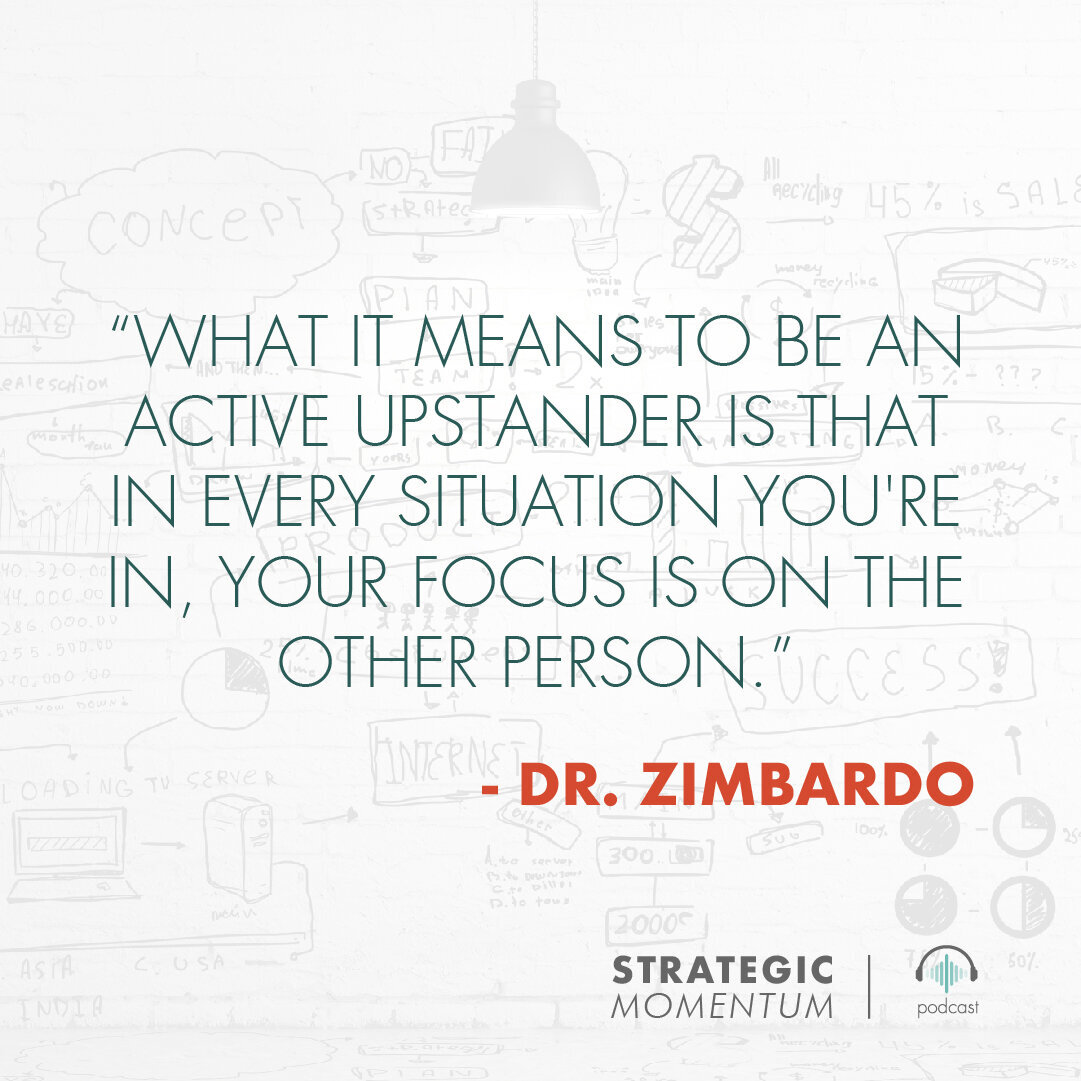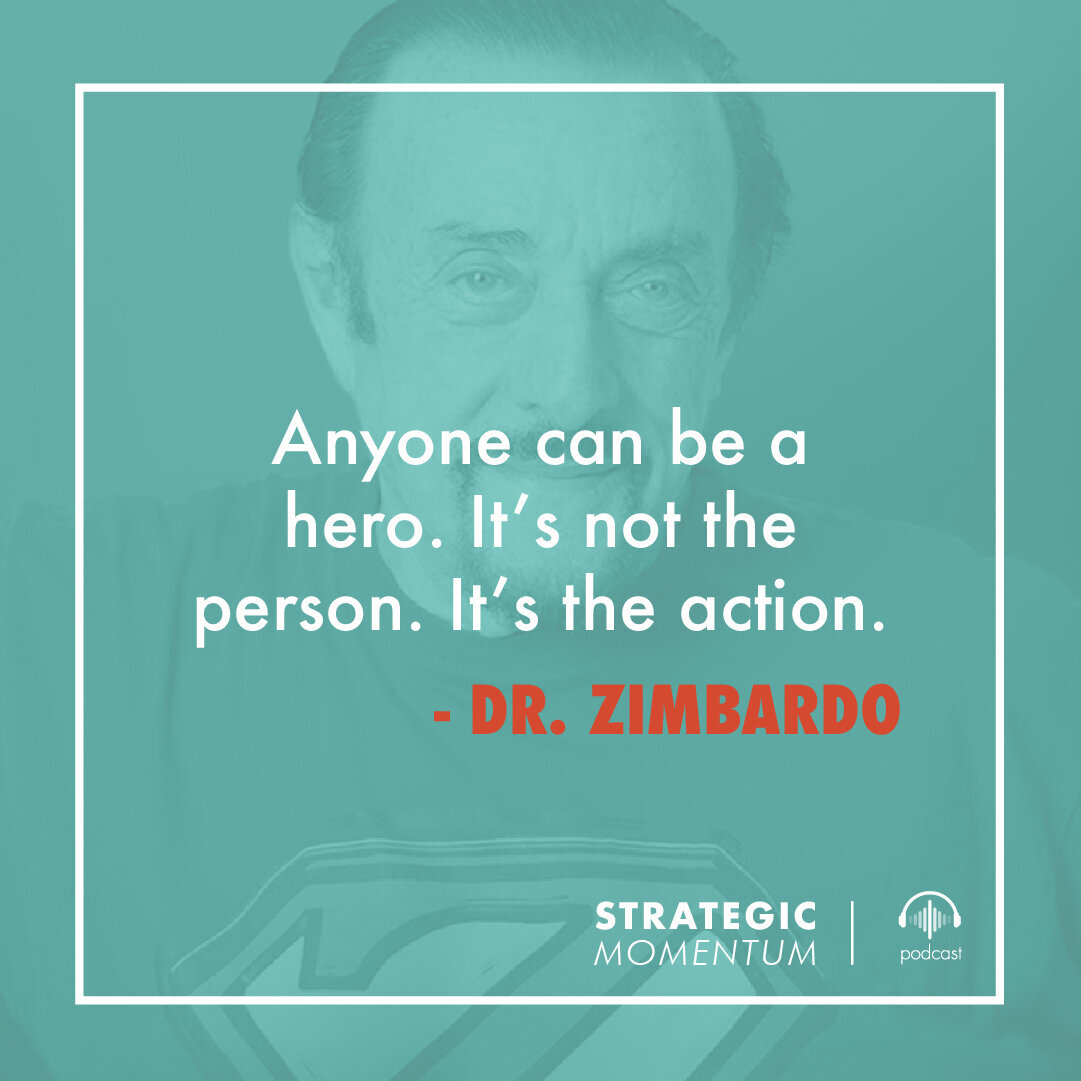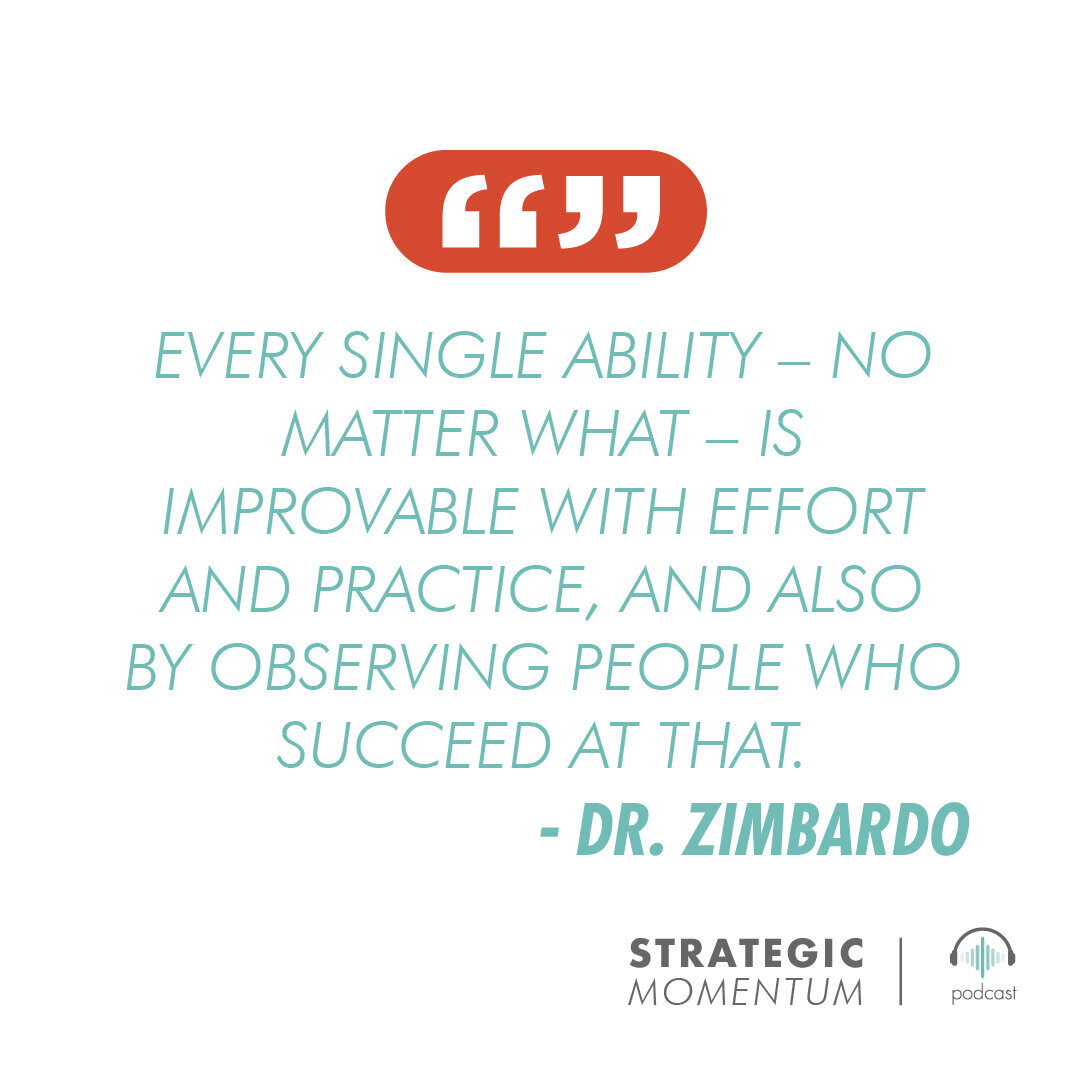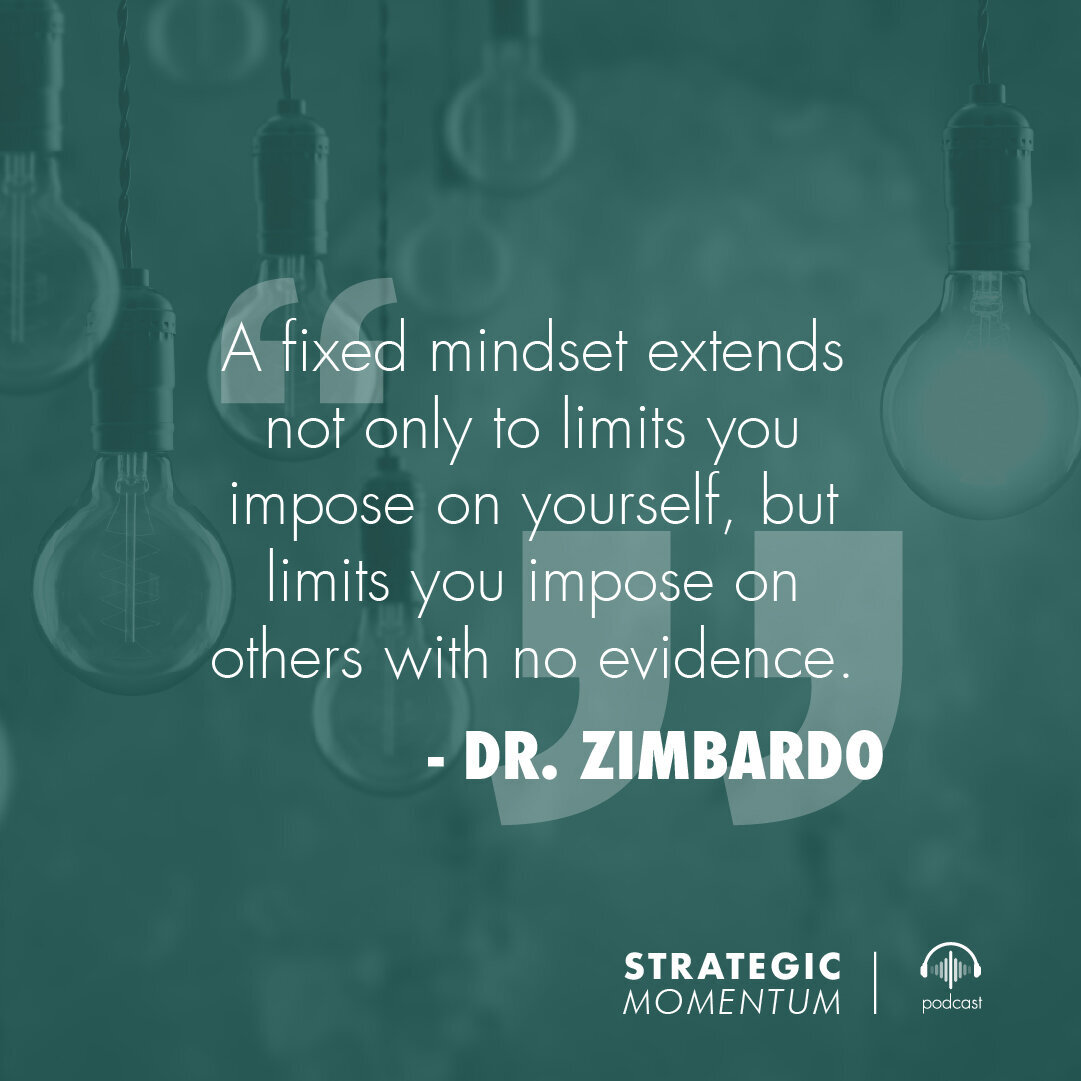Ep. 18 - How to Stand Up, Take Action and Be an Everyday Hero
Find Us Wherever You Listen To Podcasts
What makes a hero - in business and in life?
At 84, Dr. Philip G. Zimbardo, a renowned social psychologist who is best known for his Stanford Prison Experiment, has spent most of his career examining human behavior to understand why people do good things, evil things, and nothing.
In this interview, Dr. Zimbardo gives us a look into the foundation and purpose of his latest initiative, The Heroic Imagination Project. The project explores everyday heroism and how to train “ordinary” people to be heroes, with the rallying cry: “Stand Up, Speak Out, Take Action Against Injustice.” He asserts, “Anyone can be a hero. It's not the person. It's the action.”
To achieve heroism, Dr. Zimbardo highlights two distinct pathways: overcoming the bystander effect and adopting a growth mindset.
Overcoming the Bystander Effect
The bystander effect is what occurs when humans observe injustice happening but take no action to confront it -- often because of fear or apathy.
The bystander effect is often present in the workforce with office bullies. An upstander, the hero, would confront the bully or otherwise address the problem that no one else wanted to.
Prejudice is another common enemy. While some might allow prejudice to occur in hiring or training, the upstander would challenge the issue and redirect policy to instill impartiality.
Growth Mindset
Having a fixed mindset is another major inhibitor not only of being a hero, but of finding success in your career, and even your personal life.
A fixed mindset describes the idea that one is either good at something or not. The antidote to this is a growth mindset, an outlook that accepts the current state but does not make absolute statements or negative projections towards the future. A growth mindset rests heavily on the word “yet” – i.e. instead of “I’m not good with this automation software,” one says, “I’m not good with this automation software, yet.”
Dr. Zimbardo emphasizes the importance of acknowledging growth potential in yourself and others and creating a work culture that hires on potential, catering to growth and evolution of employees.
Key Takeaways
Anyone can be a hero – it’s not just TV superheroes and leaders of social movements. Being a hero means taking action, standing up against injustice and doing the thing that other people may be afraid to do.
Stand up to bullies at work. Report or confront them, either individually or as a group. They negatively affect the work environment, which affects productivity and ultimately the bottom line, and sometimes all it takes is one hero to stand up and say something for the problem to be fixed.
To confront hiring prejudice, managers must analyze their thinking and feeling, and not make judgments based on limited information. “Every single ability - no matter what - is improvable with effort and practice, and also by observing people who succeed at that.”
To be an upstander, put your focus on the “other.” Treat others with respect. Be a friend or colleague when they need it and do not let prejudice cloud your decision-making.
Challenge your fixed mindset. Don’t say “I’m not good at A, B, C, or D.” Instead, focus on growth potential: “I’m not good at A, B, C, or D…yet.”
As a leader, hire based on talent and potential. It's about training for potential, and it's having you know your own personal understanding that you can grow in your potential.
Every person has some talent or ability, and every ability is improvable with effort and practice, and by observing other skilled people. As a manager, place employees in positions that cultivate and promote their best talents.
Note to Listeners in the San Francisco area:
The Heroic Imagination Project is hosting a Hero Roundtable on Saturday, April 21 and Sunday, April 22 at the Marine Memorial Theater. It will be a gathering of “two dozen extraordinary heroes, everyday heroes, superheroes, people have done research on heroism, people have written comic books." For event information, visit www.heroroundtable.com/sf.
DOWNLOAD THE EBOOK
Get the key insights and advice from this episode in a PDF presentation.
Resources:
Learn more about The Heroic Imagination Project at www.heroicimagination.org
Learn more about Dr. Zimbardo: zimbardo.socialpsychology.org
Connect with Dr. Zimbardo on Twitter
Subscribe to the Strategic Momentum podcast:












